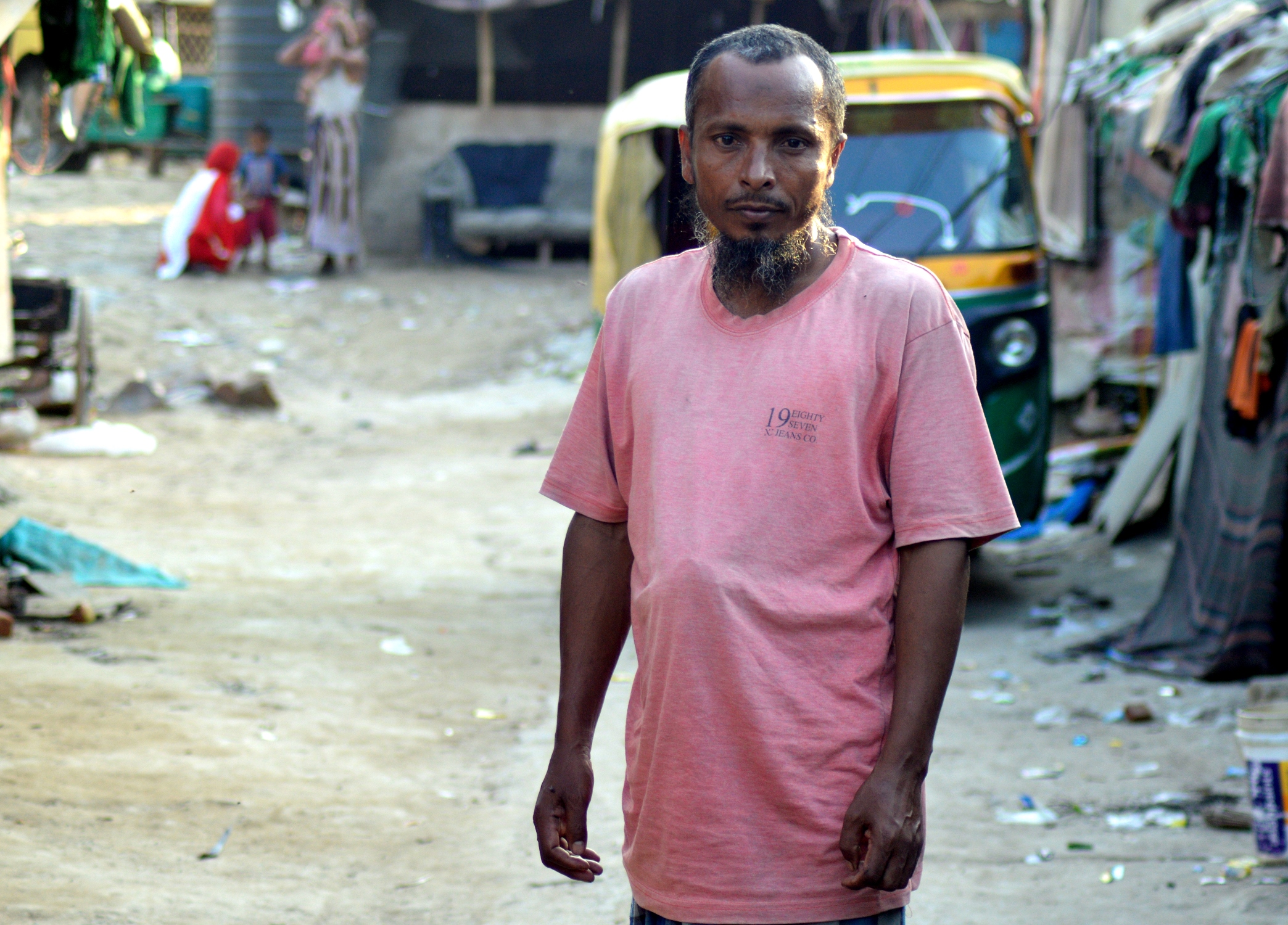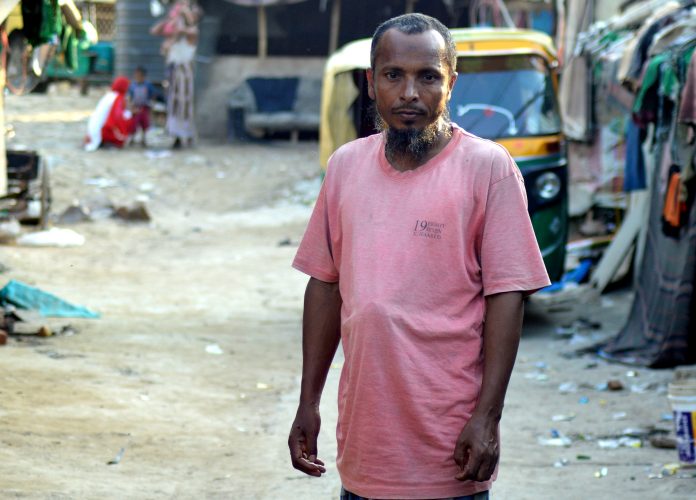
What does a Rohingya feel when he is told that he is an ‘illegal immigrant’, a ‘security threat’ and ‘unwanted’ in India? What was their life like before they had to run away to save themselves? What does it feel to be reduced to just a statistic? What do the Rohingyas feel when they hear the news that they will be deported back to the land where their lives are in danger? In a five-part series, Raqib Hameed Naik speaks to five refugees who had to give up all they owned to attempt a start a new life. Their stories, in the first person, are an attempt to go beyond majoritarian narratives and give them a platform to express their views and opinions. In the fourth part of the series, we listen to Mohammed Noor-ul-Amin.
Mohammad Noor-ul-Amin, 47 belongs to Kamacha village in Maungdaw district of Rakhine State of Myanmar. He has five children-three boys and two girls. Eldest among them is Mohammad Anas, 14, who studies in a madrassa run by Rohingya refugees in the slum. He fled his village in 2013.
“My name is Noor-ul-Amin. I am from village Kamacha in Maungdaw district. I had land in my village where I used to grow rice and different vegetables like potato, brinjal, tomatoes, ladyfinger and sell them to traders in Maungdaw town. My land was taken away by the government.
The government brought in poor Buddhists to Rakhine from other parts of the state…some of these Buddhists also belonged to Bangladesh. The government gave our land to them. My land was also given to one such family. After making me give up my land, the government also forced me to construct a house for the new residents, making me spend my hard-earned money.
From a landlord, the government reduced me to a beggar. We couldn’t enter in our own lands. Even animals were not spared. Many times they killed my cattle for entering in fields that I used to previously own.
I remember how four educated boys were called by the Army in their camps and beaten so badly that no one could survive. Even their dead bodies were not handed over to their families. They used to beat us for petty things but we couldn’t dare to say or complain to anyone. Due to fear, our lips were sealed. To make it worse, the government had even put restrictions on our travel. We were not allowed to travel between two towns. Given that we had lost our land, we had to find some source of income. So, most of the times we used to sneak secretly out of the villages to find work in the towns.
The government had made a list of every family in our village and pasted it like on a notice board in front of every house. The army used to raid villages during the night and gather all the villagers in a ground and count the family members mentioned in the list. If someone was found missing, his name was struck off from the roll and family was told that he was unlikely to return.
If we were caught running away, death by a bullet was almost a certainty. However, if an officer was a little soft-hearted, you would land in prison for at least five to seven years. The same thing happened with media went to Maungdaw town for work and army raided our village in the night and my name was deleted from the roll, so my death was imminent. So I decided to run for my life.
Even when they snatched away our right to citizenship, we didn’t leave our country, hoping that one day some leader will come and give us our civil rights but it seems we won’t be able to see that day.
I left Myanmar in 2013 and I don’t remember the month. The journey to Bangladesh was very difficult and dangerous mostly near the Myanmar border. The army used to shoot any Rohingya found crossing the border. Somehow I managed my way into Bangladesh and spent months waiting for rest of my family to arrive.
Finally, they reunited with me. I remember bursting into tears at the sight of my children because like every other parent, I love my children.
I stayed in Bangladesh for one and a half years and worked as a labourer earning 100- 150 taka a day. One of my cousin sisters had already escaped in 2012 and settled in Jammu. I always had dreamt of getting the education for all my children but that I couldn’t realise while living in Bangladesh as wages were quite low and we could barely make ends meet.
She told me how peaceful India was, and that we will be more safe and secure in India and many NGOs were involved in teaching Rohingya children. So, without even giving it a second thought I came to India and after UNHCR registration, rented a hut in a Shram Vihar where other Rohingyas were already living.
After settling here, the reality I observed was slightly different to what I had been told. I work as a labourer. Though wages are comparatively better than Bangladesh, the work is limited. In a month I am able to find work for only 12-15 days. But there is a sigh of relief that at least we are alive, safe and in peace with no military atrocities and restrictions on our movement.
It seems that we won’t be able to enjoy this security for long if the government goes ahead with its plan to deport us. Even if any animal is pushed to fire, he will make all attempts to resist. We are humans with a history of persecution.
It is not that we don’t want to go back to our country; even a cattle who is freed in the morning comes to his shed at night. But the fear is strong and the continuous persecution of our community has meant that as of now, we cannot even imagine going back.
Those bad memories and restrictions will haunt me forever. We want the government to at least allow us to live here until the conditions improve in our country and normalcy is restored.
I had plans that I will also give formal education to my children but with clouds of deportation hovering over us, those dreams have been washed away. It seems that we will have to live as refugees for our whole lives, travelling from one to another country. I have now decided to train them as a tailor because it will ensure that they have steady income wherever they go, deported or not.


